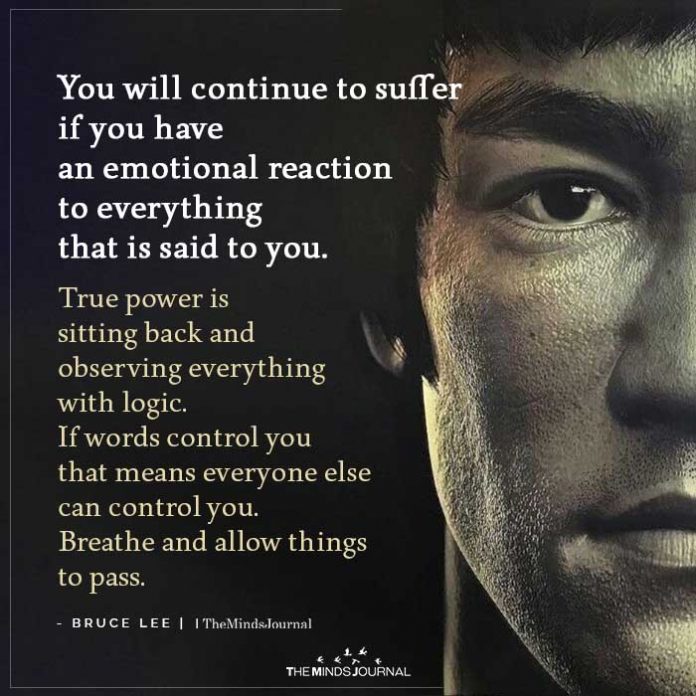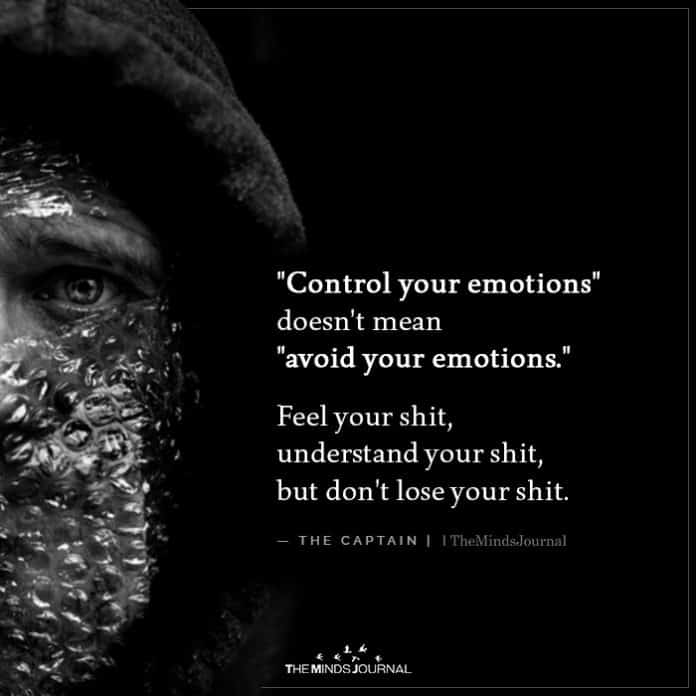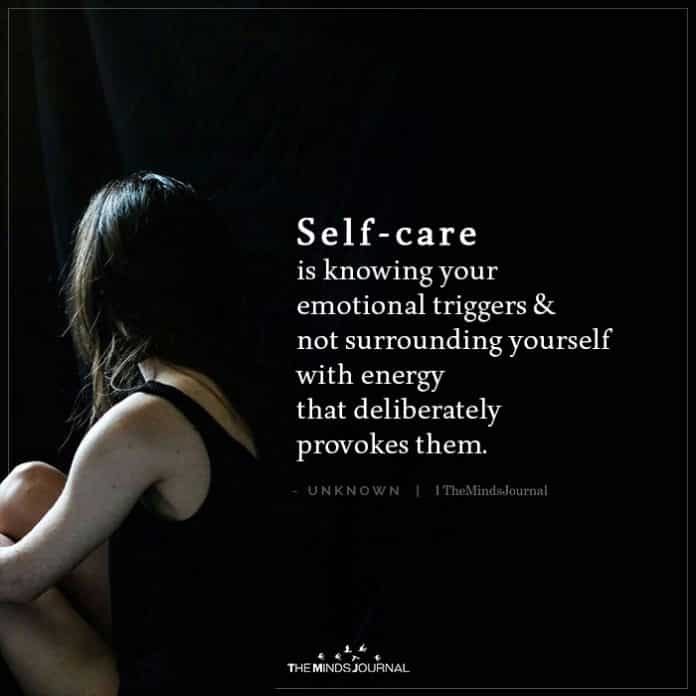When you learn to develop emotional stability, you learn to handle adversity and stay productive during stressful situations. It allows you to effectively manage negative emotions and live a happier life.
What is emotional stability
Being emotionally stable means you have the inner strength to face life’s challenges and remain calm even when your life seems the most chaotic. “Emotional stability is a desirable trait. It means you can withstand difficult situations, handle adversity, and remain productive and capable throughout,” says neuroscientist and author Nicole Gravagna. She adds “To become emotionally stable, you must be willing to drive headlong in the opposite direction of becoming emotionally expressive, if only temporarily.”
We cannot control life, but we can always control our emotions. We lose our jobs, our relationships end, we lose loved ones and life gets out of control. When you develop emotional stability, you can better cope with life’s problems, manage your own emotions, stay grounded and find balance. You know when and how to take the right steps to bring your life back on track and experience inner peace and happiness.

Psychologist Arthur E. Poropat explains “More emotionally stable people have weaker reactions to negative stimuli and hence are less readily discouraged, less distractible, and more confident in their own abilities.” In fact, studies show that there is a direct relationship between emotional stability and confidence in maintaining balance.
Author Genefe Navilon explains “Emotional stability means having the ability to deflect negative affectivity – the tendency to experience the world in negative emotions.”
She says an emotionally stable person can –
- Remain calm and composed during difficult situations
- Stay productive and capable during obstacles and challenges
- Doesn’t feel burdened by negative emotions constantly
- Has a strong sense of self-esteem and self-confidence
When you develop emotional stability, you strengthen your emotional core. It provides you the inner strength to face life and experience happiness.
Read 6 Traits Of An Emotionally Mature Person
Why you need to be emotionally stable
Cultivating emotional stability doesn’t mean you hide or ignore your emotions. All your emotions are important and valuable, whether it’s negative or positive. There is a reason why we feel love, hatred, anger, compassion, envy, inspiration and many other emotions. When you pay close attention to your emotions, you will realize they are trying to tell you something. Ignoring or suppressing your emotions will make you emotionally unstable.
“Emotional stability doesn’t mean that you never get mad or angry, but it does mean that you have the wherewithal to process those emotions and see them for what they are: responses to your thoughts about a situation or circumstance,” explains author and entrepreneur Lachlan Brown.

Emotions can be tricky. However, being emotionally unstable can lead to a lot of psychological and emotional problems. When you bottle up your feelings for a long period of time, they can often surface when you least expect it and damage your career, relationships, and personal life.
“Emotional instability is caused by a lifetime of trying to control your emotions. Controlling your emotions, tamping them down or limiting yourself to short periods of expression, for years or decades causes emotions to back up,” writes neuroscientist Nicole Gravagna.
So learn to acknowledge and accept your emotions. Learning how to develop emotional stability can enable you to practice emotional healing and overcome the entrapment of emotional instability.
Read 12 Warning Signs Someone Is Emotionally Unstable
5 ways to develop emotional stability
If you want to be unafraid of change, manage your anxiety and live a better life even when you face obstacles, then learning to develop emotional stability is imperative. Emotional stability is a trait that you can learn and develop over time. However, it will not be the easiest thing to do. Once you learn to master your emotions and become resilient, you will be able to stay grounded and balanced even during the most uncomfortable moments of your life.
Here are 5 ways to develop emotional stability and live a happier, better, and more resilient life.
1. Shift your perspective
Whenever anything bad happens in our life, we immediately have a strong negative reaction to it. Negative experiences often lead to negative emotional responses which are much stronger than it needs to be. As most of us don’t expect the worst to happen to us at any given moment, we tend to react strongly which clouds our judgment and decision-making abilities.
However, when you change your perspective and look at things in a different way, you will realize that challenges are often opportunities in disguise.

“We all have tunnel-vision – we only see what we want to see. But you’ll be surprised how looking at things differently can help you assess negative life situations better,”writes author Genefe Navilon.
Due to negative bias, humans are tricked into looking at the negative aspects more than the positive outcomes of a situation. The fact is, there is always an upside to every adversity you face. But it ultimately depends on how you look at an experience.
Bestselling author Stephen Guise explains “I think by default we tend to pick the worst one because negative events bias our mind to negative thoughts about those events. But if we consider other, more positive perspectives, we can reverse this negativity cycle. Look for the positives in negative situations – they’re there!”
Just realize that things could have been a lot worse. So try to be grateful for what you have and shift your perspective.
2. Express your emotions
Acknowledge, understand, accept and express all your emotions, whether good or bad. Studies have found that ignoring or suppressing your emotions can lead to depression and other mental health issues.
One 2019 study showed that “expressing one’s true emotions and the feeling is crucial to physical health, mental health, and general well-being, while a reliance on concealment gives rise to a barrier to good health.” When you hide or bottle your emotions up, it eventually leads to an inappropriate outburst of emotions
Learning to develop emotional stability starts with expressing your feelings. Neuroscientist Nicole Gravagna explains “Humans require regular emotional hygiene, and if you haven’t been doing that kind of thing, then you are probably backed up emotionally. Emotional hygiene is a practice of allowing yourself to feel all the way to the bottom of whatever emotion is present for you.”

It means you respect yourself and your emotions. It means you value your negative emotions as much as your positive emotions. It means you have the inner strength to face your emotions instead of running away hiding from them. Genefe Navilon writes “You need to feel emotional pain, pay attention to it, as well as address the psychological wounds it creates. Otherwise, they have no hope of healing.”
Read How to Stop Feeling Anxious, Depressed and Emotionally Overwhelmed
3. Check your expectations
If you wish to develop emotional stability, then expect things to go wrong at the last moment. Life is an adventure. There are lots of risks and dangers, but it can also be highly enjoyable and rewarding. If you expect your life to be smooth, then you’re going to be disappointed. Genefe Navilon explains “Emotionally stable people appear calm in crazy situations because they’re not shocked that they’re happening. They didn’t anticipate it, but they know there’s a possibility they could happen.”
Think of life more as a roller coaster, than a walk in the park. The more mentally prepared you are for negative experiences, the less emotionally reactive and more emotionally stable you will be.
Stephen Guise writes “Are you expecting a smooth, linear, predictable life of goodness? Well, it won’t ever happen to anyone. The next time something bad happens to you, think of it as a challenge instead of a huge problem. Be ready for challenges, and they won’t catch you off guard.”
You don’t need to be a pessimist and expect unexpected challenges and disappointments to crop up every single moment of your life. You simply need to be aware that life can go haywire at any moment. “Those who expect that life will throw you difficulties and disappointments are the ones who are the strongest and most resilient out of all of us,” adds Genefe.
Read 6 Ways To Build Emotional Resilience and become Unfuckwithable
4. Create an action plan
When life seems bleak, it is likely you will experience an emotional turmoil and lack willpower, energy and motivation. This is why it is crucial that you have an action plan to help you develop emotional stability. Figure out what you can do to get out of the situation you’re in. When you have a clear intention, you will feel a rush of energy inside you, which will motivate you to take the necessary action.

Emotionally stable individuals know exactly what they need to do to get out of the dump so that it doesn’t cripple them for too long, says Genefe Navilon. She adds “What you should do is to create micro-plans: a checklist of things that can get you moving.” Make plans that enable you to accomplish small daily tasks that you wouldn’t be able to complete otherwise. It can be anything from taking a shower to sending an email. As you progress through your checklist, you will start getting more things done.
“Moving life forward is key to emotional health because it’s the ultimate sign that you haven’t given up… Small steps forward are infinitely better than no steps taken at all. Thus, creating action plans and taking action are very helpful to reinforce your emotional health and stability,” writes Bestselling author Stephen Guise.
Read Healing Your Emotional Triggers: 5 Ways to Be Less Reactive
5. Learn to say “NO”
If you want to develop emotional stability, then one of the fundamental ways to do it is to stop saying “yes” all the time and say “no”, when you want to, according to nuclear engineer Melissa Ricker. She says that people who are emotionally stable “do not over-commit themselves or make false promises. They just say no to requests that they don’t want to do or don’t have time for.”
If you are emotionally unstable, then it is likely that you have difficulty saying no and as a result others take advantage of you. Emotionally stability gives you the confidence to say no. “These calm, yet assertive people don’t feel bad about saying no either, and they don’t even need to explain why they are saying no. After all, “No” is a complete sentence,” adds Melissa.
Although you don’t need to be mean or rude to tell what you genuinely feel, you need to do what’s best for you no matter what. Otherwise you might end up losing not just your emotional stability, but also your self-esteem.
“When you don’t say no to anything, you are saying yes to everything,” says entrepreneur Lachlan Brown. He adds “In order to find more balance, you need to stop saying yes to everything and feeling like you owe all your time to other people. Start by cutting out the things that drain your energy and awareness and be diligent about saying no when the moment, opportunity, or even a person doesn’t serve you.”
When you say no to certain responsibilities, expectations, requests and people, you create more space for what is actually important to you.
Read How Emotionally Intelligent People Handle Toxic People

However, that’s not all. There are many other ways for you to develop emotional stability. Here are some of the most simple and effective ways to cultivate emotional stability in your life:
- Identify your stress and anxiety triggers
- Be selective about your social circle
- Engage in hobbies and do things that you love
- Make sure to seek help when you need it
- Accept your flaws and be authentic
- Tune into your intuition and instincts
- Listen more than you speak
- Practice mindfulness meditation and breathing exercises
- Take risks and learn from mistakes & failures
- Take good care of yourself
- Practice self-healing
- Listen to relaxing music
Develop emotional stability and cultivate happiness
No matter what the circumstances in your life may be, tell yourself that you’re always in control – if not of the situation, then in control of yourself and your reactions. Decide how you want to respond to life and be intentional in your approach. Life is what you make of it, not what happens to you.
Licensed clinical psychologist Chloe Carmichael, Ph.D. explains “When you feel like your emotions aren’t your own, remember that you can still choose how to react to those emotions. With a little mindfulness and a bit of practice, being emotionally stable is achievable. Emotional stability starts from you, but don’t hesitate to get help managing your emotions if you need it.”
Control your emotions to control yourself. Control yourself to control your life.
Read 7 Things You Need To Do To Heal Emotionally











Leave a Reply